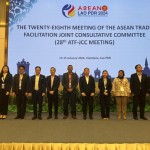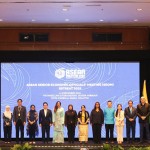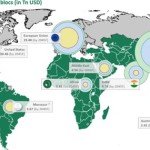Total number of posts 463.

MSMEs are the backbone of ASEAN economies, accounting for 97% of all enterprises. These MSMEs play a crucial role in job creation, contributing 85% of total employment and significantly to GDP, making up 45% of the region's GDP. However, MSMEs only contribute 18% to exports, indicating a significant gap in their integration into international trade.
Most of these enterprises operate in the service sectors, particularly wholesale and retail, with a smaller proportion in manufacturing. A notable feature is the high concentration of MSMEs in rural areas, ranging from 72% to 85%, compared to 15% to 28% in major cities and capitals. Women-owned enterprises form a significant portion, although these businesses are often concentrated in less productive sectors with lower earnings.
Challenges and Strategic Responses
MSMEs face numerous challenges, including high trade costs, complex customs procedures, and limited access to finance. The lack of market knowledge and technical expertise also hinders their ability to engage in cross-border trade. Additionally, awareness and utilization of Free Trade Agreements (FTAs) among MSMEs are lower compared to larger enterprises.
To address these challenges, ASEAN has implemented the Strategic Action Plan for SME Development (2016-2025). This plan focuses on five main objectives:
1. Promote Productivity, Technology, and Innovation: Enhancing the technological capabilities and innovative potential of MSMEs.
2. Increase Access to Finance: Improving financial accessibility to support business growth and sustainability.
3. Enhance Market Access and Internationalization: Facilitating MSMEs' entry into international markets.
4. Improve Policy and Regulatory Environment: Creating a conducive environment for MSME operations through better policies and regulations.
5. Promote Entrepreneurship and Human Capital Development: Developing entrepreneurial skills and human capital to drive MSME growth.
Regional Cooperation and Initiatives
From 2016 to 2024, ASEAN, through the ASEAN Coordinating Committee on Micro, Small, and Medium Enterprises (ACCMSME), has implemented over 100 cooperative projects with external partners. These initiatives aim to enhance MSME capabilities and market access. Key partners include Australia, China, Japan, Korea, and ASEAN Plus Three.
Notable initiatives include:
- Australia: Establishing regionally comparable and recognized Unique Business Identification Numbers (UBIN) and capacity-building programs on international food standards.
- China: Business matching programs and e-commerce adoption to enhance export capacity.
- Japan: Policy development support and market access activities through ASEAN Access.
- Korea: Enhancing digital economy participation for women-owned MSMEs and financial accessibility seminars.
Future Policy Priorities and RCEP Implementation
ASEAN aims to strengthen the role of MSMEs in the ASEAN Economic Community (AEC) Blueprint 2025. The vision is to create globally competitive, resilient, and innovative MSMEs that are seamlessly integrated into the ASEAN community and contribute to inclusive development.
To implement Chapter 14 of the RCEP Agreement on SMEs, several solutions can be proposed:
- Utilizing the ASEAN Access platform to share information.
- Organizing training and awareness sessions on RCEP regulations.
- Facilitating events to connect MSMEs with potential partners and buyers.
These efforts are expected to enhance the competitiveness and integration of MSMEs into the regional and global economy, promoting sustainable growth and economic recovery in ASEAN.














